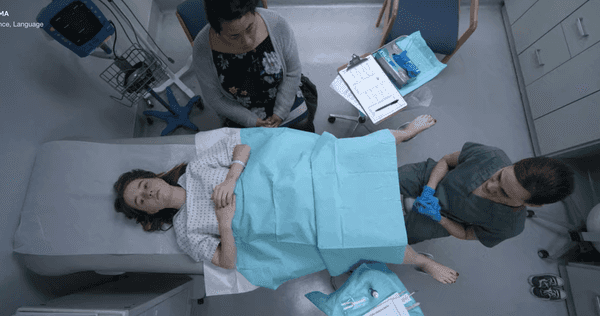Of course, we all hope that we will never personally witness the pain that comes with sexual violence, but it is important nonetheless to know the warning signs that an assault may have occurred. We need to have enough knowledge about sexual assault survivors to be able to tell that something isn't quite right with friend's behavior, attitude, or even their appearance. To protect them as well as ourselves, it's critical that we know and understand how a survivor may act in the aftermath of such a horrific event.
With that being said, here are a few of the red flags that could be present in the life of someone who has been sexually assaulted:
1. They are experiencing unexplained depression and anxiety symptoms
As of lately, you've noticed that your friend has not been acting like themselves. They may be exhibiting signs of depression such as extreme sadness, hopelessness, chronic fatigue, and changes in their sleep patterns and appetite. Or they might be uncharacteristically anxious, worrying excessively, having regular panic episodes, or being easily startled. If unaddressed, these feelings and behaviors can worsen and prevent the individual from healing from the assault later on. Whether they are having a post-traumatic response or have just been struggling with their mental health, they need your friendship now more than ever.
2. They're being treated for an STI—and they're single, safe, or in a committed relationship
Your friend has always been incredibly cautious with their sexual partners, so it strikes you as odd when they admit that they've been receiving treatment for a sexually transmitted infection. What's more is this person is single, prioritizes their sexual health, or has been in a committed monogamous relationship for quite some time with a faithful partner. With that being said, if their STI-positive status is completely out-of-character, it's possible that they were forced to be unsafe with someone against their will.
3. They engage in reckless drug and alcohol use
This person went from being strait-laced and sober to erratic and preoccupied with drugs and alcohol. They've started binge-drinking or using drugs recreationally, affiliating with a new crowd of friends who encourage them to let loose and let go of their inhibitions. If your friend is a survivor of sexual assault, it's possible that they adopted these new behaviors to distract themselves from thinking about what happened to them. Being drunk and/or high takes away from the sharpness of their emotions, but it also poses some serious threats to their physical health.
4. They make an effort to avoid certain places or situations
Once eager to go out on the town, your friend is suddenly more reluctant than ever— especially when it comes to specific places or events. They might be fearful of a party because it's taking place at a particular house, of a dimly lit street corner or road, of an alleyway, or of any other location that may be where an assault has taken place. Maybe they once jumped at the opportunity to go out to their favorite bar, but they suddenly want to avoid going there at all costs. If your friend seems to be very nervous or on edge when you pass by or even talk about visiting this place, there may be something more to the situation that justifies their fears
5. They isolate themselves from friends and loved ones
Someone who has survived sexual assault is inundated with a lot of emotions that they may want to process in private. When asked if something is wrong, they might dismiss it and assure you that they're okay, but how they've been acting seems to suggest otherwise. Your friend spends a lot more time alone and often turns down offers to hang out. They leave text messages and calls unanswered and may even get defensive if their privacy is infringed upon. Their withdrawal from the people who care about them isn't intentional, but could instead be their way of coping with what happened to them without having to reveal the details of the assault.
6. Their grades are dropping and they routinely skip class and work
Your friend is usually a dedicated student and a hard worker, but they now appear to be moving in a downward spiral. They are skipping classes regularly and missing their shifts at work and their grades are dropping drastically. Anyone who has experienced any kind of trauma is likely to lose focus on their daily routine. The lack of focus may come off as a newfound indifference, or it could be a telltale sign that this individual has undergone a traumatic experience.
7. They show signs of physical abuse (bruises, black eyes, etc.)
Depending on the nature of the assault, survivors can sustain a multitude of injuries that suggest that they were physically harmed. Bruises, cuts, scrapes, scratches, black eyes, and even broken or dislocated bones may result from a bodily attack. In addition, the individual may also suffer from more intimate injuries that could point more directly to sexual assault, including rectal or vaginal tearing and subsequent bleeding. While physical signs of injury alone cannot prove that a sexual assault has taken place, if you feel that your friend has been hurt in a way that was not accidental, it is possible that they were a victim of sexual violence.
8. They admit that they haven't been sleeping well (or at all) recently
It's common for a sexual assault survivor to not sleep well in the aftermath of their attack. They may experience difficulty falling or staying asleep or they may have recurring nightmares that could echo what happened to them when they were assaulted. If your friend confesses that they have been having a hard time sleeping and subsequently feel exhausted all the time, there may be something going on that's a bit more than typical college stress.
9. They are exhibiting post-traumatic symptoms
Sexual assault survivors can exhibit symptoms of post-traumatic stress disorder (PTSD) in the immediate wake of the assault or even months or years after it has taken place. The events that unfolded were too much for the survivor to process all at once, so the emotions are embedded deep in their brains and surface every so often in sharp, unpleasant doses. Triggers in the person's environment, including but not limited to sights, sounds, their assailant's voice, images, videos, and sexual language, can evoke a panicked response in the survivor as they appear to relive the trauma all over again. Your friend may be suffering from PTSD related to sexual assault if they have recently started to startle easily or show signs of panic and distress.
10. They appear uncomfortable with even friendly physical contact
After being physically violated by another person, the survivor will likely find it very difficult to feel comfortable in close proximity with others. They may shy away from the touches of even their closest friends and loved ones and they may especially be opposed to romantic contact of any kind. After being so seriously harmed, they want to regain control over their bodies and remain untouched in their effort to stay safe. Even a good-natured touch could startle or unsettle them, for they are trying to remember what it felt like to be unafraid of physical contact.
11. They seem to have developed a very hateful self-image
In the wake of surviving a sexual assault, the person may feel cheap, used, dirty, and disgusting. Their body was violated and their boundaries were crossed, leaving them at their most vulnerable in front of someone who chose to abuse them to demonstrate their power. Survivors often develop a cruel self-image as a result, calling themselves ugly or openly stating that no one will ever want to love them or date them. They might feel that their abuser could not even respect them, so they do not deserve respect themselves. If your once body-positive, self-loving friend has started to view themselves in a darker, more critical light, it's possible that something happened to make them feel less than worthy of love and respect.
If you or someone you know is a survivor of sexual assault, you can visit the following websites for guidance on how to begin the healing process. Know always that you are never alone and that there are so many people who will always be willing to help you get through this. You will win this fight.
Sexual assaut resources for college students:
lRAINN (Rape, Abuse, and Incest National Network)
RAINN's National Sexual Assault Online Hotline (or call at 800-656-4673)
United States Department of Justice
Office of Women's Health: Relationships and Safety






















